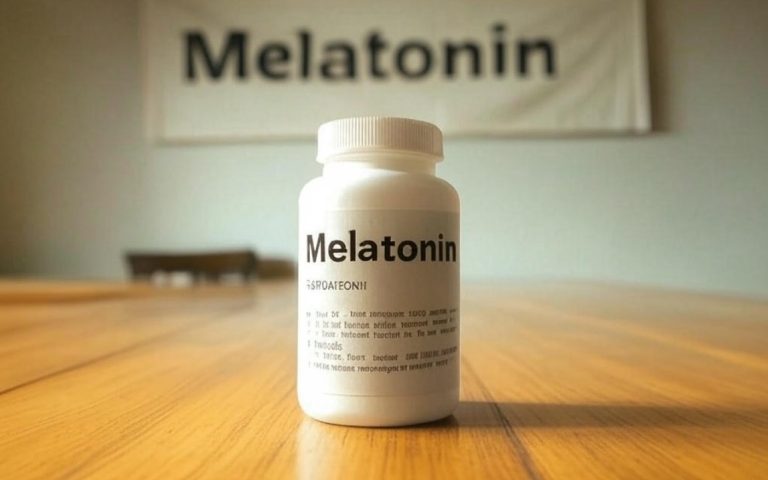If you’re taking Mounjaro (tirzepatide) and not seeing the weight loss results you expected, you’re not alone. Many people start this medication with high hopes, only to experience slow progress or sudden plateaus. But does Mounjaro guarantee weight loss on its own? The short answer is: no, it doesn’t.
Mounjaro works by mimicking hormones that regulate appetite and insulin. It helps reduce hunger, slow down how quickly food leaves your stomach, and improve insulin sensitivity.
These changes can lead to weight loss, but only when paired with the right diet, lifestyle, and dosing strategy. The drug is designed to support your efforts not replace them.
This article breaks down the most common reasons why Mounjaro might not be delivering the results you’re aiming for and what you can do about it.
Are You in a Calorie Deficit While Taking Mounjaro?
One of the most overlooked factors when using Mounjaro is the importance of a calorie deficit. While Mounjaro helps control appetite, it’s still possible to consume more calories than your body needs, particularly if you aren’t consciously monitoring your intake.
A calorie deficit means that your body is burning more energy than it receives from food and drink. When this occurs consistently, the body starts to use stored fat for fuel, leading to weight loss. Without a calorie deficit, weight loss will not occur, even if your appetite is reduced.
The recommended calorie deficit for healthy weight loss is around 600 calories less than your maintenance intake. For most people, that equates to:
| Group | Maintenance Calories | Target for Weight Loss |
| Assigned male at birth | ~2,500 kcal | ~1,900 kcal |
| Assigned female at birth | ~2,000 kcal | ~1,400 kcal |
While counting every calorie isn’t necessary for everyone, using a calorie tracker can be helpful — especially if you’re struggling to lose weight. Apps like the NHS Food Scanner or MyFitnessPal can provide insights into where hidden calories may be coming from.
Is Your Diet Supporting Your Weight Loss Goals?

Mounjaro supports appetite control, but what you eat still plays a major role. A poor-quality diet can hinder progress even if you’re eating less overall.
Choosing whole foods rich in protein, fibre, and healthy fats helps to keep you fuller for longer, stabilises blood sugar, and supports metabolic health.
Processed foods, on the other hand, are calorie-dense and nutrient-poor. They can interfere with Mounjaro’s appetite regulation by causing blood sugar spikes and crashes, leading to increased cravings.
To support healthy weight loss, the focus should be on balanced meals. A practical approach is to use the “Mounjaro Plate” method:
| Portion | Food Type |
| ½ plate | Non-starchy vegetables (broccoli, spinach, peppers) |
| ¼ plate | Lean protein (chicken, tofu, fish, eggs) |
| ¼ plate | Complex carbohydrates (brown rice, quinoa, legumes) |
Simple changes such as reducing portion sizes, avoiding sugary drinks, cutting back on oils, and cooking meals at home can lead to significant calorie savings. Using an air fryer or low-calorie sprays instead of oils, for example, can cut hundreds of calories from your meals.
Have You Reached Your Maintenance Dose of Mounjaro?
Mounjaro is designed to be introduced gradually, starting with a 2.5mg dose. This helps your body adjust and reduces the likelihood of side effects. However, lower doses may not suppress appetite significantly, and weight loss might be minimal during this phase.
Many individuals do not experience meaningful weight loss until they reach a maintenance dose, which may be 10mg or 15mg, depending on their needs and response.
The titration schedule typically spans several months, and it’s important not to rush the process. Steady progress allows your body to adapt safely.
Weight loss results from clinical trials based on dosing:
| Dose | Average Weight Loss After 72 Weeks |
| 5mg | ~16% of starting body weight |
| 10mg | ~21.4% |
| 15mg | ~22.5% |
If you’re still on a low dose or midway through your titration, be patient. It’s not uncommon for significant weight loss to begin only after several months of consistent use at your optimal dose.
Have You Hit a Temporary Weight Loss Plateau?

Weight loss plateaus are common and can happen even when everything seems to be going right. A plateau refers to a period when weight loss slows down or stops altogether, despite continued efforts with medication, diet, and exercise.
This typically occurs because the body becomes more efficient at using energy as it adapts to weight loss. As your weight decreases, your calorie requirements also go down, meaning your previous intake may now be maintenance rather than a deficit.
Additionally, initial rapid weight loss is often due to water weight, particularly at the beginning of treatment or a new diet. Once this water is replaced or stabilised, the scales may stop moving even if you’re continuing to lose fat.
To overcome a plateau:
- Reassess your calorie intake to ensure you’re still in a deficit
- Introduce new forms of physical activity or increase intensity
- Stay consistent with your medication and routine
- Consider increasing your protein intake to preserve muscle mass
Plateaus are not permanent. With time and strategy adjustments, most people begin to lose weight again.
Are You Physically Active Enough?
Physical activity is a crucial component of long-term weight management and metabolic health. While it’s possible to lose some weight with Mounjaro alone, incorporating regular exercise significantly improves outcomes.
Exercise increases your daily calorie expenditure, builds muscle (which helps you burn more calories at rest), and improves insulin sensitivity. Even modest increases in activity can produce noticeable results when sustained over time.
If you’re new to exercise, start with simple daily changes like walking more, taking the stairs, or doing household chores. The goal is to gradually build movement into your day until it becomes routine.
For those who are already active, increasing the intensity, duration, or frequency of workouts may help break through a plateau. Incorporating both cardiovascular and resistance training is ideal.
The NHS recommends:
| Activity Type | Weekly Target |
| Moderate cardio (e.g. brisk walking, cycling) | 150 minutes |
| Vigorous cardio (e.g. running, HIIT) | 75 minutes |
| Strength training | At least 2 days/week |
Consistently staying active not only aids weight loss but also improves heart health, mood, and long-term maintenance.
Have You Been Using Mounjaro Long Enough?

Weight loss is a gradual process even with the support of medications like Mounjaro. Expecting rapid results within a few weeks may lead to disappointment.
On average, people begin to see consistent weight loss after the first two to three months, with the most significant results showing after sustained use.
According to clinical studies, here is a general timeline of weight loss with Mounjaro:
| Time on Mounjaro | Average Weight Loss |
| Month 1 | 1% to 3% of body weight |
| Month 2 | ~6% |
| Month 3 | ~8% to 9% |
| Month 4 | ~11% |
| Month 5 | ~12% |
| Month 17 (72 weeks) | 16% to 22.5% |
Factors such as age, metabolic rate, current weight, and lifestyle habits all influence how quickly individuals respond to Mounjaro. It’s also important to stick to your treatment plan through titration and reach your maintenance dose before evaluating the medication’s effectiveness.
Could Other Medications or Health Conditions Be Affecting Your Progress?
Weight loss resistance is not always about food or exercise. In some cases, underlying medical conditions or the side effects of other medications may be interfering with your progress on Mounjaro.
Conditions such as polycystic ovary syndrome (PCOS), hypothyroidism, Cushing’s syndrome, and insulin resistance can all make losing weight more difficult.
Similarly, medications like corticosteroids, certain antidepressants, or hormonal treatments may promote weight gain or reduce the effectiveness of GLP-1 medications.
In such cases, it’s crucial to work closely with a healthcare provider to:
- Adjust medication timing if needed
- Monitor hormone levels and metabolic markers
- Explore alternative medications if necessary
What Should You Do If You’re Still Not Losing Weight on Mounjaro?

If you’ve evaluated your diet, ensured you’re in a calorie deficit, reached your maintenance dose, maintained consistency, and you’re still not losing weight, it may be time to revisit your plan with a healthcare professional.
In some cases, adjustments to dosage, changes in medication, or support from a nutritionist or exercise specialist can make a significant difference. It may also be helpful to temporarily track your calories and macronutrients to better understand where gaps may lie.
Frequently Asked Questions
Why have I stopped losing weight after initial success with Mounjaro?
This is likely due to a natural weight loss plateau. Adjusting your diet and activity level can help reignite progress.
Is it safe to increase my Mounjaro dose if I’m not losing weight?
Only under medical supervision. Your provider will guide you through safe titration based on your progress and tolerance.
What’s a realistic weight loss rate on Mounjaro?
The average is 1–2 pounds per week. Long-term studies show up to 22.5% weight loss over 72 weeks.
Do I need to track calories on Mounjaro?
Not always, but if weight loss is slow, tracking can help identify unintentional overeating.
Should I avoid certain foods while on Mounjaro?
Yes. It’s best to limit ultra-processed foods, sugary drinks, and high-fat takeaways while focusing on nutrient-rich whole foods.
Can exercise alone improve results with Mounjaro?
Exercise complements Mounjaro by improving metabolism and preventing muscle loss, which supports better outcomes.
When should I speak to a doctor about my lack of progress?
If you’ve been on Mounjaro for several months at a maintenance dose with no weight loss, consult your GP or weight management specialist.






